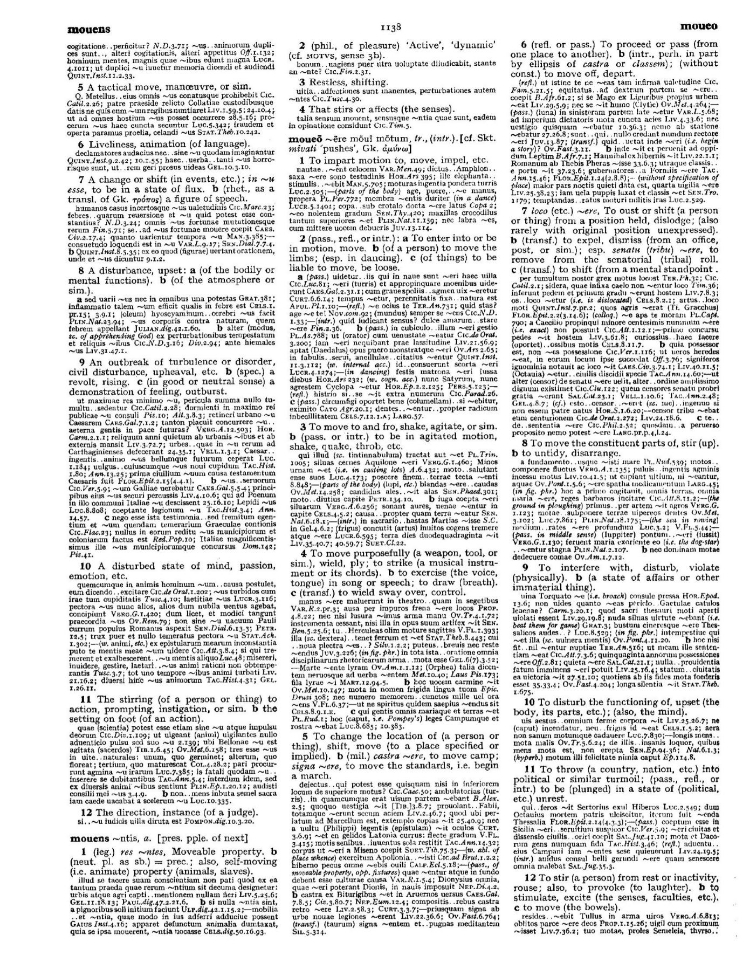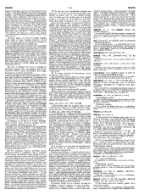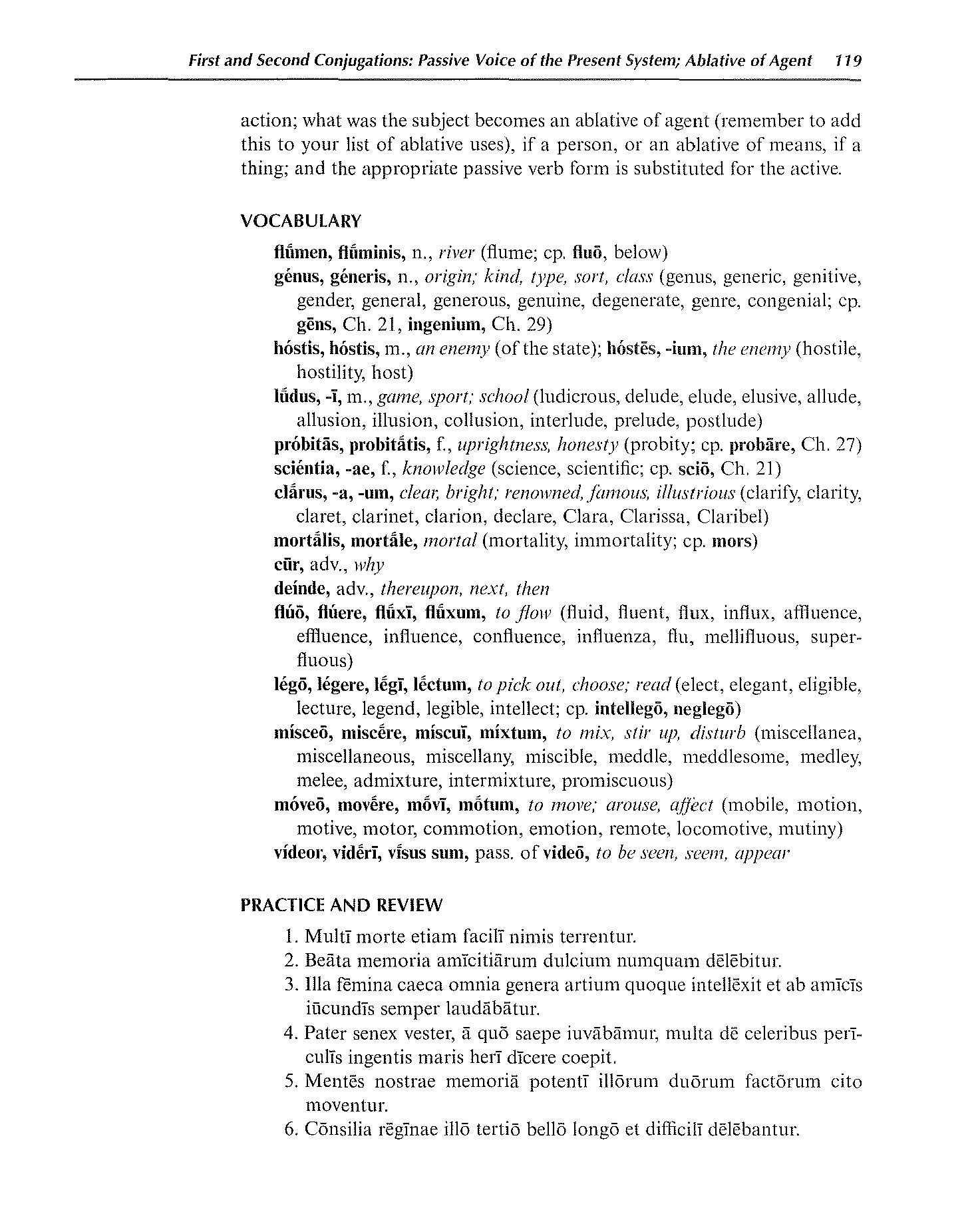
page_listing.tpl
page_subListingDetails.tpl
sub_listingDetails_style1.tpl
sub_listingDetails.title.tpl
movēre to move
movēre is a Latin Verb that primarily means to move.
Definitions for movēre
Wheelock's Latin
Verb
- 1
to move; arouse, affect
English derivatives:
mobile motion motive motor commotion emotion remote locomotive mutiny
Oxford Latin Dictionary
Verb
- 1
To impart motion to, move, impel, etc.
- 2
(pass., refl., or intr.): To enter into or be in motion, move.
- 3
To oust or shift (a person or thing) from a position held, dislodge; (also rarely with original position unexpressed).
- 4
To throw (a country, nation, etc.) into political or similar turmoil; (pass., refl., or intr.) to be (plunged) in a state of (political, etc.) unrest.
- 5
(esp. of things) To cause a change of attitude, opinion, etc., in (a person, his mind), influence, affect; (also, the body).
Sentences with movēre
Latin to English
Omnēs virōs nostrōs laudāmus, quī virtūte et vēritāte moventur, nōn amōre suī.Compare We praise all our men, who are moved by courage and truth, not by love of themselves.
Ab amīcīs movēbātur; cōnsiliīs eōrum movēbātur.Compare He used to be aroused (moved) by his friends; he used to be aroused by their plans.
Nam castum esse decet pium poetam ipsum, versiculos nihil necesse est, qui tum denique habent salem ac leporem, si sunt molliculi ac parum pudici et quod pruriat incitare possunt, non dico pueris, sed his pilosis qui duros nequeunt movere lumbos.Compare For a poet respectful of the Muses should himself be chaste, but his little verses need not be so. All their salt and elegance comes from being licentious, immodest, suggestive of prurient thoughts - not indeed in children but in hairy old men unable to bestir their numbed loins. [Tr. N.G.]
Quem nulla ambitio, nulla unquam largitio, nullus timor, vis nulla, nulla auctoritas movere potuit in iuventa de statu, ecce in senecta ut facile labefecit loco viri excellentis mente clemente edita, summissa placide blandiloquens oratio!Compare Never, when I was younger, could any urging, any promise of reward, any threat, compulsion, or command from above persuade me to stoop below my rank. Now, in my old age, an illustrious man has readily induced me to do so, by soft and flattering words, uttered with kindness.
O imitatores, servum pecus, ut mihi saepe bilem, saepe iocum vestri movere tumultus!Compare O imitators, you slavish herd! How often have your false alarms stirred my wrath, how often my mirth!
Nec ego consul moveo, qui ipse pluma aut folium facile moveo.Compare Nor do the consuls move me, who are themselves moved more easily than a feather or a leaf.
Ceterum hic quoque is timor causa sum mature moveo ex hiberna.Compare But this fear was also his reason for moving earlier from winter quarters.
Conjugation table for movēre
Cactus2000
| ACTIVE | |
| Indicative present | Indicative imperfect |
| moveō movēs movet movēmus movētis movent | movēbam movēbās movēbat movēbāmus movēbātis movēbant |
| Indicative perfect | Indicative pluperfect |
| mōvī mōvistī mōvit mōvimus mōvistis mōvērunt / mōvēre | mōveram mōverās mōverat mōverāmus mōverātis mōverant |
| Indicative future | Indicative future perfect |
| movēbō movēbis movēbit movēbimus movēbitis movēbunt | mōverō mōveris mōverit mōverimus mōveritis mōverint |
| Subjunctive present | Subjunctive imperfect |
| moveam moveās moveat moveāmus moveātis moveant | movērem movērēs movēret movērēmus movērētis movērent |
| Subjunctive perfect | Subjunctive pluperfect |
| mōverim mōveris mōverit mōverimus mōveritis mōverint | mōvissem mōvissēs mōvisset mōvissēmus mōvissētis mōvissent |
Infinitive present movēre Infinitive perfect mōvisse Infinitive future mōtūrum esse | Imperative present movē movēte Imperative future movētō movētō movētōte moventō |
| PASSIVE | |
| Indicative present | Indicative imperfect |
| moveor movēris movētur movēmur movēminī moventur | movēbar movēbāris / movēbāre movēbātur movēbāmur movēbāminī movēbantur |
| Indicative perfect | Indicative pluperfect |
| mōtus sum mōtus es mōtus est mōtī sumus mōtī estis mōtī sunt | mōtus eram mōtus erās mōtus erat mōtī erāmus mōtī erātis mōtī erant |
| Indicative future | Indicative future perfect |
| movēbor movēberis / movēbere movēbitur movēbimur movēbiminī movēbuntur | mōtus erō mōtus eris mōtus erit mōtī erimus mōtī eritis mōtī erunt |
| Subjunctive present | Subjunctive imperfect |
| movear moveāris / moveāre moveātur moveāmur moveāminī moveantur | movērer movērēris / movērēre movērētur movērēmur movērēminī movērentur |
| Subjunctive perfect | Subjunctive pluperfect |
| mōtus sim mōtus sīs mōtus sit mōtī sīmus mōtī sītis mōtī sint | mōtus essem mōtus essēs mōtus esset mōtī essēmus mōtī essētis mōtī essent |
Infinitive present movērī Infinitive perfect mōtum esse Infinitive future mōtum īrī | Imperative present movēre movēminī Imperative future movētor movētor - moventor |
| PARTICIPLE | ||
| Participle present active | ||
| Nom. | movēns | moventēs |
| Gen. | moventis | moventium |
| Dat. | moventī | moventibus |
| Acc. | moventem | moventēs |
| Abl. | movente | moventibus |
| Participle future active | ||
| Nom. | mōtūrus | mōtūrī |
| Gen. | mōtūrī | mōtūrōrum |
| Dat. | mōtūrō | mōtūrīs |
| Acc. | mōtūrum | mōtūrōs |
| Abl. | mōtūrō | mōtūrīs |
| Participle perfect passive | ||
| Nom. | mōtus | mōtī |
| Gen. | mōtī | mōtōrum |
| Dat. | mōtō | mōtīs |
| Acc. | mōtum | mōtōs |
| Abl. | mōtō | mōtīs |
| Gerundive | ||
| Nom. | movendus | movendī |
| Gen. | movendī | movendōrum |
| Dat. | movendō | movendīs |
| Acc. | movendum | movendōs |
| Abl. | movendō | movendīs |
| Gerund | Supine | |
| Nom. | movēre | mōtum |
| Gen. | movendī | mōtū |
| Dat. | movendō | |
| Acc. | movendum | |
| Abl. | movendō | |
Data sources
Notes
- Definitions
- Frederick M. Wheelock, Wheelock's Latin, 6th ed., rev. Richard A. LaFleur (New York, NY: HarperCollins Publishers, 2005): 119.
- P. G. W. Glare, Oxford Latin Dictionary, Vols. 1-8 (Oxford: Clarendon Press, 1982): 1138.
- Word frequencies
- Christopher Francese, "Latin Core Vocabulary," Dickinson College Commentaries, last modified 2014, http://dcc.dickinson.edu.
- Paul B. Diederich, The Frequency of Latin Words and Their Endings, PhD diss., (Columbia University, 1939).
- Louis Delatte, Suzanne Govaerts, Joseph Denooz, and Etienne Evrard, Dictionnaire fréquentiel et index inverse de la langue latine [Frequency Dictionary and Inverse Index of the Latin Language] (Liège, Belgium: Laboratoire d'analyse statistique des langues anciennes de l'Université de Liège [L.A.S.L.A.], 1981): 120.
Bibliography
Allen, Joseph H. Allen and Greenough's New Latin Grammar for Schools and Colleges: Founded on Comparative Grammar. Edited by James B. Greenough, George L. Kittredge, Albert A. Howard, and Benjamin L. D'Ooge. Boston, MA: Ginn & Company, 1903.
Crystal, David. A Dictionary of Linguistics and Phonetics. 6th ed. Oxford, UK: Blackwell Publishing, 2008.
Delatte, Louis, Suzanne Govaerts, Joseph Denooz, and Etienne Evrard. Dictionnaire fréquentiel et index inverse de la langue latine [Frequency Dictionary and Inverse Index of the Latin Language]. Liège, Belgium: Laboratoire d'analyse statistique des langues anciennes de l'Université de Liège (L.A.S.L.A.), 1981.
Diederich, Paul B. The Frequency of Latin Words and Their Endings. PhD diss., Columbia University, 1939.
Francese, Christopher. "Latin Core Vocabulary." Dickinson College Commentaries. Last modified 2014. http://dcc.dickinson.edu/latin-vocabulary-list.
Gildersleeve, Basil L., and Gonzales Lodge. Gildersleeve's Latin Grammar: Third Edition, Revised, and Enlarged. 3rd ed. London, England: Macmillan and Co., 1903.
Glare, Peter G.W. Oxford Latin Dictionary. Vols. 1-8. Oxford, England: Clarendon Press, 1982.
Krüger, Bernd. "Latin Conjugation Tables." Cactus2000. Accessed May 5, 2023. https://latin.cactus2000.de/index.en.php.
Pierson, Nick. "Sound of Text." Accessed October 26, 2019. https://soundoftext.com.
Wheelock, Frederick M. Wheelock's Latin. 6th ed. Revised by Richard A. LaFleur. New York, NY: HarperCollins Publishers, 2005.
Wiktionary Contributors. "Victionarium." Wikimedia Foundation, Inc. Updated March 18, 2019. https://la.wiktionary.org/wiki/Victionarium:Pagina_prima.
Citation
Chicago (17th ed.)
Allo Contributors. "moveō, movēre, mōvī, mōtum (v.) - Latin Word Definition." Allo Latin Dictionary. Last modified . Accessed February 20, 2026. http://ancientlanguages.org/latin/dictionary/moveo-movere-movi-motum.
Entry created on . Last updated on .








